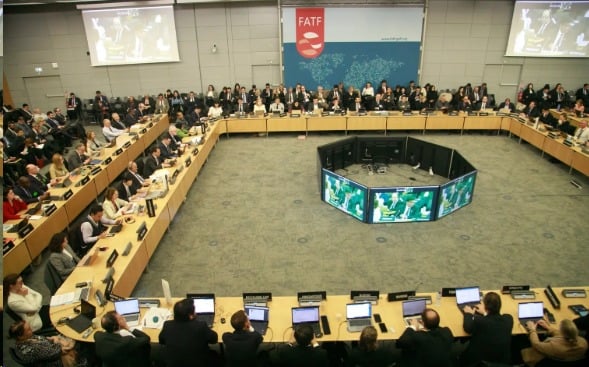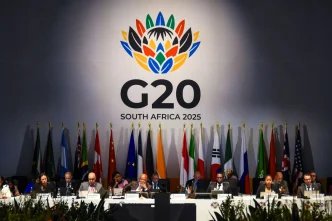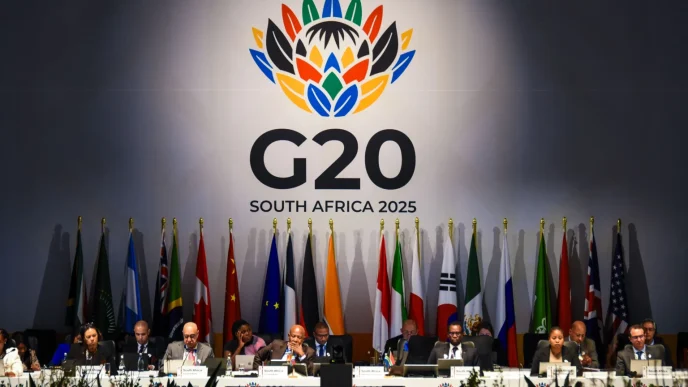Tunji Alausa, Nigeria's minister of education and Indian High Commissioner to Nigeria, Abhishek Singh
For the first time ever, all four iPhone — the 17 pro, 17 pro max, air and the basic 17 — are being made in India for global markets. Less than two months after the iPhone 17 launched globally, Apple, the makers of iPhone, have exported more than $10 billion worth of iPhones from India. Why is this important? Stay with me.
On October 23, 2025, the Nigerian ministry of education advanced plans to host the first Indian Institutes of Technology (IIT) campus in West Africa. According to the minister, Tunji Alausa, the campus will be set up at the Federal Government Academy (FGA) in Suleja, also known as the Nigerian Academy for the Gifted. His main reason for this was proximity to talent.
This IIT campus is expected to take in its first batch of students in 2026 and will grant undergraduate and postgraduate degrees in engineering, technology, and research.
India is the fastest growing major economy in the world today; the World Bank estimates India would grow its economy by 6.5% in 2025. One of the major reasons for this is the tech expansion happening in India, which is no accident but a product of many years of training, fundamental restructuring and dextrous dealmaking across the world.
Advertisement
HOW IPHONES COME INTO THE PICTURE
After President Donald Trump was sworn in as president of the United States, he threatened heaven-high tariffs on every nation, especially China. He called for local manufacturing in the US, as part of his America first agenda. For Apple, this was a bad idea because more than 80% of iPhones, Macbooks and iPads are made in China.
This brought back the age-long debate about labour being cheap in China, and why Apple decides to design in California, but manufacture in China. Speaking about Apple’s choice of China, Tim Cook, Apple CEO, said the company’s presence in the country was not because of cheap labour but due to concentration of necesary expertise in one location.
“There is a confusion about China. The popular conception is that companies come to China because of low labour costs, but the truth is China stopped being a low labour cost country many years ago,” Cook said.
Advertisement
“The reason is because of the skill, the quantity of skill in one location. The product we do require really advanced tooling and the precision that you have to have in tooling and working with the materials that we do are state of the art. And the tooling skill is very deep here [in China]. In the US, you could have a meeting of tooling engineers, and I am not sure we could fill the room. In China, you could fill multiple football fields.”
When Cook said this, Elon Musk agreed.
In search for an alternative to China, Apple also started investing in India, and this investment came in handy in 2025, when tariffs hit China. An exemption was made for India electronics import, which made it easy for Apple to export iPhones from India to the US and the rest of the world.
NIGERIA AS ALTERNATIVE TO CHINA
As a journalist, I often have access to more information than I can possibly use. Some stories only reveal their true significance when placed alongside another event. On several occasions, I’ve heard respected economists and thinkers describe Nigeria’s potential to emerge as an alternative to what China and India offer the world. It all makes sense now.
Advertisement
Tim Cook and Elon Musk may be right about China no longer being a cheap market but remaining a skilled market, but Nigeria today and possibly in the next 20 years will still be a cheaper market than both China and India. Our problem is that we do not have the concentration of skills necesary to make Nigeria an alternative to China.
Nigeria plan to host India’s IIT should not just be to achieve India’s goal of expanding its higher education base to other countries as the country’s 2020 National Education Policy demands, it need to cater to Nigeria’s need to build skills needed to get foreign manufacturing companies seeking cheaper and skilled market outside China or India.
This is ambitious, but with the right training and knowledge transfer, Nigeria can indeed serve as an alternative for some of the expertise and skilled hands that China and India offers the world today. India’s IIT produced tech CEOs like Google’s Sundai Pichai and IBM’s Arvind Krishna — this took time and continuous investments.
The world’s manufacturing maps will shift, and nations that prepare will profit. If Nigeria treats the IIT partnership not just as a prestige project but as a skills revolution, it can build the human capital that draws the next Apple or Tesla to its shores. India has shown what decades of investment in education and engineering can yield, and if we do it right, who knows we could be producing the iPhone 30s out of Suleja.
Advertisement
You can reach ‘Mayowa on Twitter @OluwamayowaTJ
Advertisement













